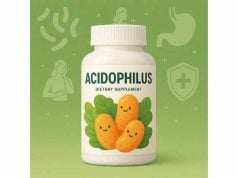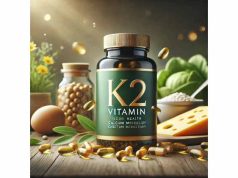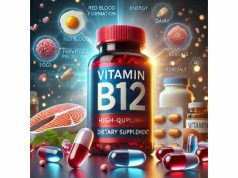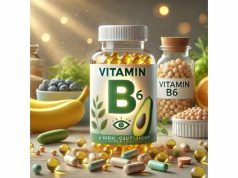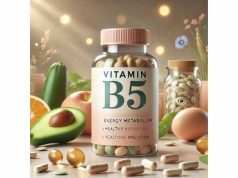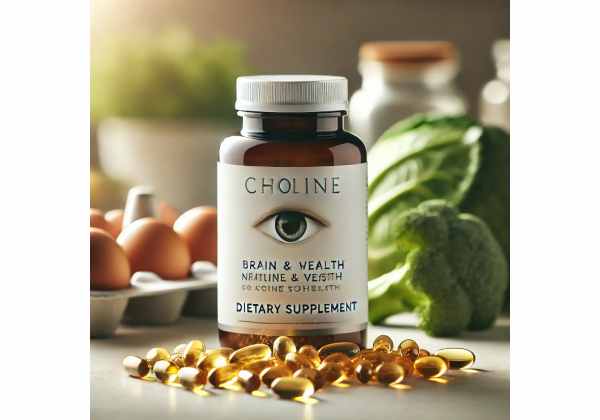
Choline, an essential nutrient often grouped with the B-complex vitamins, has generated growing interest for its potential impact on maintaining clear eyesight. While best known for supporting liver function, cell membrane integrity, and neural signaling, choline may also play a role in preserving vital structures within the eye. By promoting effective nerve communication and offering supportive properties for ocular tissues, choline could strengthen visual function, reduce fatigue, and enhance overall eye comfort. In this article, we’ll examine what choline is, how it might support vision, and the various ways to incorporate it into your wellness approach for long-term ocular health.
Table of Contents
- Understanding Choline: The Basic Overview
- Linking Choline to Vision Enhancement
- Crucial Reasons Why Choline Benefits Eye Function
- Implementing Choline for Best Outcomes
- Analyzing Scientific Studies and Clinical Findings
- Frequently Asked Questions
- References and Sources
Understanding Choline: The Basic Overview
Choline is an organic, water-soluble compound that the body can synthesize in small amounts, though most individuals still rely on dietary sources to meet their needs. It operates similarly to certain B vitamins, primarily supporting functions ranging from neurotransmission to liver metabolism. Because choline is a building block of phosphatidylcholine—a vital component of cell membranes—it’s instrumental in preserving cell integrity throughout the body, including those of the ocular system.
Choline’s Classification and Function
- Essential Nutrient: While not strictly classified as a vitamin, choline is recognized as essential because the body cannot generate sufficient amounts on its own.
- Acetylcholine Precursor: Acetylcholine is a neurotransmitter involved in muscle movement, memory, and various involuntary functions. Choline is a key ingredient in its creation.
- Cell Membrane Support: Choline forms phospholipids like phosphatidylcholine, ensuring the stability and fluidity of cellular membranes, critical for organ health.
Food Sources and Supplement Types
Choline naturally appears in a wide array of foods:
- Animal Products: Egg yolks, liver, fish, and chicken are excellent sources.
- Legumes & Seeds: Soybeans, kidney beans, peanuts, and sunflower seeds.
- Cruciferous Vegetables: Broccoli, Brussels sprouts, and cauliflower.
For those needing higher intake due to dietary restrictions or specific health goals, choline supplements come in several forms:
- Phosphatidylcholine (PC): Usually derived from soy lecithin; widely used to support overall health, including brain and liver function.
- Choline Bitartrate: A popular, cost-effective option often added to multivitamin formulas.
- CDP-Choline (Citicoline): Notable for its involvement in synthesizing phospholipids and boosting neural repair and signaling.
- Alpha-GPC (L-Alpha Glycerylphosphorylcholine): Valued for potentially crossing the blood-brain barrier easily, used in nootropic applications.
Choline Deficiency Concerns
Symptoms of inadequate choline intake may include fatigue, memory issues, or muscle aches. In severe cases, fatty liver problems can develop due to disrupted lipid metabolism. While direct links between choline deficiency and poor vision aren’t thoroughly established, overall systemic imbalance can compound stress on ocular structures.
Preliminary Links to Eye Health
Choline’s role in cell membrane formation and neurotransmitter balance hints at its indirect but impactful influence on the eye. Achieving adequate choline levels may help ensure robust nerve function in the retina, proper tear production, and stable ocular cell membranes. Combined with its anti-inflammatory potential, these factors lay the groundwork for choline’s promise in promoting better vision.
Linking Choline to Vision Enhancement
Choline Improves Vision by maintaining healthy nerve signaling, robust vascular function, and stable cellular architecture in the eye. Although it might not be the first nutrient people think of for ocular health, evidence suggests that choline can play an integral part in preserving clarity and reducing eye fatigue.
Nerve Signaling in the Retina
The retina is essentially neural tissue, relying heavily on efficient synaptic communication to transmit visual information to the brain. Acetylcholine, derived from choline, helps facilitate messaging across synapses:
- Photoreceptor Function: Rods and cones require consistent supplies of neurotransmitters to convert light signals into electrical impulses.
- Synaptic Speed: Well-maintained acetylcholine levels can support better nerve conduction velocity, potentially leading to quicker adaptation to changes in brightness.
Structural Integrity of Ocular Cells
Cell membranes in ocular tissues, such as the cornea, lens, and retinal epithelium, are constantly renewing. Phosphatidylcholine—constructed from choline—upholds the structural and functional integrity of these membranes:
- Corneal Clarity: The cornea’s transparency is crucial for letting light pass unimpeded. Healthy membranes prevent fluid imbalance and clouding.
- Lens Transparency: A stable lens structure is vital for focusing light onto the retina. Distortions in membrane proteins can accelerate cataract formation.
Tear Film Production
Optimal tear composition hinges on balanced lipid and aqueous layers. Choline can influence the meibomian glands (responsible for oil in tears), thus aiding tear film stability:
- Reduced Dry Eye Risk: Adequate intake of choline, alongside other lipotropic nutrients, might mitigate dryness by promoting cohesive tear layers.
- Less Irritation: A well-lubricated eye surface minimizes redness, itching, and light sensitivity.
Role in Blood Vessel Health
Retinal cells demand a continuous supply of oxygen and nutrients through fine capillaries. Poor vascular health can degrade visual acuity over time. Choline’s involvement in lipid transport and cell signaling can indirectly support these small vessels:
- Preventing Plaque Buildup: Balanced lipid metabolism reduces cholesterol accumulation, possibly aiding microcirculation in ocular tissues.
- Maintaining Proper Vessel Function: Inflammatory responses or stiffening of blood vessels can hamper nutrient delivery; choline’s anti-inflammatory potential helps maintain vascular elasticity.
Combating Oxidative Stress
While not a direct antioxidant, choline’s metabolic benefits may minimize systemic stress:
- Liver Detoxification: By supporting the liver’s role in filtering toxins, choline reduces the overall oxidative burden that can affect various organs, including the eyes.
- Inflammation Control: Chronic inflammation is a silent threat to ocular structures. Maintaining normal levels of choline might contribute to lower inflammatory markers in the body.
Altogether, “Choline Vision Benefits” stem from the nutrient’s capacity to strengthen the foundation upon which healthy eyesight is built, via neurotransmitter synthesis, robust cell membranes, stable tear film, and vascular nourishment.
Crucial Reasons Why Choline Benefits Eye Function
When discussing Choline Eye Health, it’s helpful to explore the specifics behind how this nutrient promotes functional eyesight. Below, we detail the primary pathways through which choline helps maintain optical clarity and stave off age-related or stress-induced vision concerns.
1. Fortification of Nerve Communication
Vision depends on a rapid exchange of signals between the retina and the brain. Choline is a precursor to acetylcholine, the neurotransmitter integral to this exchange. Healthy acetylcholine production:
- Improves Signal Fidelity: Ensures minimal disruption in the flow of neural impulses from photoreceptors.
- Supports Adaptation: Aids in night vision and quick shifts from bright to dim environments.
2. Reinforcement of Structural Proteins
Membrane lipids, such as phospholipids, are essential for flexible, resilient eye tissues. Choline’s role in synthesizing these components:
- Protects Against Dehydration: Keeps the corneal epithelium hydrated and resilient, reducing the likelihood of micro-tears or abrasions.
- Delays Lens Opacification: Helps maintain crystalline clarity, thus potentially postponing cataract onset.
3. Enhanced Tear Composition
Many people struggle with chronic dryness or screen-induced eye fatigue. Adequate choline levels:
- Balance Tear Lipids: Contribute to smoother tear layers that combat evaporation.
- Minimize Scratching Sensations: With better lubrication, the cornea experiences fewer irritations.
4. Shield Against Retinal Degeneration
The retina’s delicate cells and blood vessels must withstand continuous oxidative exposure. While antioxidants like vitamins A, C, and E get most of the attention, choline’s synergy with these nutrients:
- Stabilizes Mitochondrial Functions: Better energy management in retinal cells can reduce oxidative build-up.
- Supports Inflammatory Modulation: Lower levels of systemic inflammation indirectly preserve retinal health.
5. Maintenance of Vascular Integrity
A well-functioning ocular microcirculation ensures vital nutrients and oxygen reach the retina, macula, and other critical regions. Choline’s beneficial influence on lipid metabolism:
- Reduces Risk of Blockages: Balanced cholesterol or triglycerides lessen plaque risk in small vessels.
- Promotes Vessel Elasticity: Flexible capillaries adapt more effectively to pressure changes, safeguarding the optic nerve and retina.
6. Indirect Neuroprotective Effects
Beyond immediate signal transmission, the eye’s neuronal framework also depends on maintaining healthy neural tissues. Through its ability to form phospholipids and acetylcholine:
- Supports Neurogenesis: Particularly beneficial in older adults where neuronal repair or maintenance may slow.
- Eases Chronic Stress Load: Minimizing neuroinflammation fosters an environment where ocular cells can function with fewer disruptions.
In essence, choline’s presence in the diet or as a supplement addresses multiple angles of eye maintenance. Its influence spans day-to-day comfort—reducing dryness or irritation—to long-term ocular protection against degenerative changes or chronic vascular challenges.
Implementing Choline for Best Outcomes
While choline is found in various foods, many individuals explore supplements to ensure consistent intake, especially when focusing on Choline for Vision Improvement. Below are recommended approaches for incorporating choline effectively, along with supportive lifestyle strategies to maximize ocular benefits.
Selecting the Ideal Choline Form
Several choline-based products exist, each with unique absorption characteristics:
- Choline Bitartrate: Budget-friendly option, commonly seen in multivitamins. Good for general health support.
- Phosphatidylcholine (PC): Often derived from soy lecithin, beneficial for comprehensive cell membrane support and moderate eye benefits.
- Citicoline (CDP-Choline): Known for cognitive and neuroprotective advantages, possibly beneficial for advanced ocular support given its role in phospholipid synthesis.
- Alpha-GPC: Offers high bioavailability and can cross the blood-brain barrier effectively, which may translate into robust support for nerve-related vision aspects.
Recommended Dosages
Optimal daily amounts vary based on factors like age, sex, health status, and dietary patterns. General guidelines:
- Adult Men: ~550 mg of choline per day.
- Adult Women: ~425 mg per day (increases to ~450-550 mg during pregnancy or lactation).
- Therapeutic Doses: Some individuals looking to reinforce eye health or manage certain neurological conditions may go up to 1,000 mg daily, though professional guidance is essential to prevent side effects.
Timing and Combination
- With Meals: Taking choline alongside a balanced meal improves assimilation and reduces stomach upset.
- Paired with Other Eye-Support Nutrients: Vitamins A, C, E, omega-3 fatty acids, lutein, and zeaxanthin can complement choline, collectively strengthening ocular tissues.
- Regular Intervals: For large dosages, splitting intake into morning and evening can maintain stable plasma levels throughout the day.
Dietary Complement
While supplementation can ensure a steady choline supply, a diet abundant in eye-friendly nutrients amplifies results:
- Protein and Fat: Eggs, lean meats, and healthy plant-based oils all provide synergy for building phospholipids.
- Leafy Greens: Spinach, kale, and collard greens are known to deliver lutein, a carotenoid essential for macular support.
- Colored Produce: Berries, peppers, and carrots contain antioxidants that reduce oxidative strain in the eye.
Lifestyle Measures to Maximize Results
- Adequate Hydration: Sufficient water intake encourages balanced tear film composition, reducing dryness.
- Screen Time Management: Periodic breaks (like the 20-20-20 rule) and adjusting screen brightness protect against digital eye fatigue.
- Protective Eyewear: Sunglasses block harmful UV rays outdoors; indoors, blue-light filtering lenses can ease prolonged device usage.
- Routine Eye Exams: Regular check-ups track changes in vision and detect early signs of conditions that might benefit from targeted choline usage or other interventions.
Possible Side Effects and Precautions
Choline is generally safe, but excessive doses can lead to mild discomfort:
- Gastrointestinal Upset: Bloating, diarrhea, or nausea.
- Fishy Body Odor: Often linked to higher doses, attributed to trimethylamine production.
- Low Blood Pressure: In rare cases, particularly with large amounts of certain choline forms.
Consulting with a healthcare provider before adopting a high-dose regimen remains advisable, especially for individuals with existing medical conditions or those on prescription medications.
Analyzing Scientific Studies and Clinical Findings
While choline’s role in supporting neurological health is fairly established, the intersection between choline supplementation and direct eye benefits has only recently begun to attract dedicated research. Below is a synopsis of the current body of knowledge, including areas ripe for future investigation.
Early Research on Neuroprotection
Many initial studies regarding choline revolve around cognitive function and neurodegenerative diseases:
- Citicoline in Glaucoma: Preliminary trials have investigated citicoline supplementation for glaucoma patients, hinting at potential improvements in visual field stability and optic nerve function. Though further large-scale studies are needed, these findings suggest a neuroprotective angle relevant to ocular health.
- Nerve Conduction Enhancements: In rodent models, choline administration has shown improved axonal repair and neuronal survival, implying possible parallels for retinal ganglion cells under stress.
Investigations into Vascular Health
Researchers have long noted the correlation between cardiovascular health and eye health, especially regarding microcirculation in the retina. Studies on choline’s effect on lipid metabolism and homocysteine reduction:
- Reduced Homocysteine: Elevated homocysteine levels may contribute to retinal damage over time. Adequate choline helps in the methylation cycle, potentially stabilizing homocysteine levels and safeguarding vascular structures.
- Less Arterial Plaque Risk: Choline can play a part in lipotropic actions that help remove fat accumulations from the liver and possibly from arterial walls, promoting clearer blood flow to the eyes.
Tear Film and Dry Eye Syndrome
Though not as extensively examined as more direct ocular nutrients (e.g., lutein, zeaxanthin), a handful of observational studies suggest:
- Better Ocular Surface Comfort: Some individuals with mild dryness report improved tear stability after increasing choline intake, though robust clinical trials are scarce.
- Complementary with Omega-3: When paired with essential fatty acids, choline may bolster meibomian gland function, lending more evidence toward a synergy in dryness reduction.
Emerging Clinical Trials
As interest in Choline Vision Benefits grows, new trials are focusing on:
- High-Dose Citicoline: Testing its impact on AMD (Age-Related Macular Degeneration) progression, analyzing vision field changes, and retinal thickness markers.
- Childhood Eye Development: Choline’s significance in prenatal and early life development has spurred inquiries into whether it influences the incidence or severity of common childhood vision concerns.
Future Research Directions
Gaps exist in understanding exactly how choline integrates into current ocular health paradigms:
- Optimal Dosing: Which forms (Alpha-GPC vs. Citicoline vs. PC) produce the strongest ocular outcomes and at what dosages?
- Long-Term Safety: While moderate choline intake is considered safe, the effects of consistently high amounts over years, specifically relating to eye tissues, remain under-studied.
- Combining With Other Supplements: Researchers are keen to see if synergy between choline and known eye-protective nutrients yields a more pronounced effect on conditions like cataracts, dry eye, or early macular changes.
In summary, while direct evidence on choline’s ocular impact is building, many clinical professionals regard it as a potentially valuable adjunct—especially for people tackling mild vision strain or working to prevent age-related issues. Ongoing studies will likely offer clearer insight into how best to harness choline’s multi-faceted capabilities for sharper, sustained vision.
Frequently Asked Questions
Does Choline improve vision naturally?
Yes. Choline Improves Vision by helping maintain healthy neural transmission, stable cell membranes, and balanced tear production. It indirectly supports ocular tissues through better nerve function and lipid metabolism, which may enhance overall visual clarity and eye comfort over time.
How quickly can I notice better eyesight with Choline supplementation?
Responses differ among individuals. Some people may observe reduced dryness or eye fatigue within a few weeks. More extensive improvements, such as sharper vision or greater resilience against strain, might take several months of consistent supplementation and a supportive lifestyle.
Is a specific form of Choline best for eye health?
Different forms, such as Alpha-GPC or Citicoline, offer varied absorption and neurological benefits. Citicoline has shown promise in some glaucoma-related studies, while Alpha-GPC may be beneficial for broader nervous system support. Your choice depends on personal goals and guidance from a healthcare professional.
Are there side effects to Choline supplementation?
Choline is generally safe when used within recommended doses. Minor issues can include digestive discomfort or a fishy odor if intake is too high. Always consult with a healthcare provider, especially if you have medical conditions or take prescription medications, to ensure safety and proper dosing.
Can Choline be combined with other vision-boosting nutrients?
Yes. Choline Vision Benefits typically integrate well with vitamins A, C, E, and carotenoids like lutein and zeaxanthin. This synergy helps reinforce a broad antioxidant and anti-inflammatory environment for the eyes. Coupling choline with a balanced diet and regular eye exams is recommended for optimal results.
References and Sources
- American Journal of Clinical Nutrition – Features studies on dietary choline intake, metabolic effects, and potential benefits for overall organ function.
- Nutrients – Publishes research on choline’s role in neurological health, bridging insights into its capacity to assist ocular function via neurotransmitter activity.
- Journal of Ocular Pharmacology and Therapeutics – Explores emerging treatments for glaucoma and other eye conditions, including the role of neurosupportive nutrients like Citicoline.
- Clinical Ophthalmology – Contains case reports and reviews on how micronutrients, including choline-based compounds, might help maintain retinal health and visual acuity.
- Experimental Eye Research – Offers a range of articles dedicated to investigating novel approaches for preventing degenerative eye diseases, including nutraceutical interventions.
As ongoing research continues to unveil more details, choline stands out as an intriguing addition to the range of nutrients benefiting the eyes. By supporting neurological and structural stability, it can serve as an important pillar in a well-rounded approach to maintaining clear, comfortable sight.
Disclaimer:
This article is for educational purposes only and does not replace professional medical guidance, diagnosis, or treatment. Always consult with a qualified healthcare provider regarding any questions or concerns about your vision, choline supplementation, or other health matters.
If you found this information beneficial, please share it on Facebook, X (formerly Twitter), or your preferred social channels, and follow us there for more tips on natural eye care and overall wellness!

